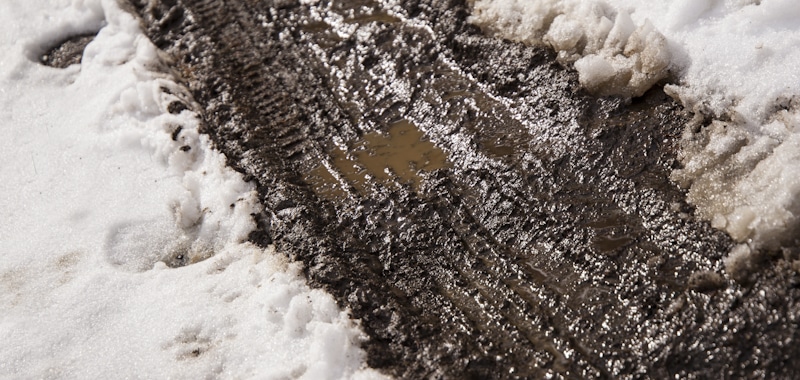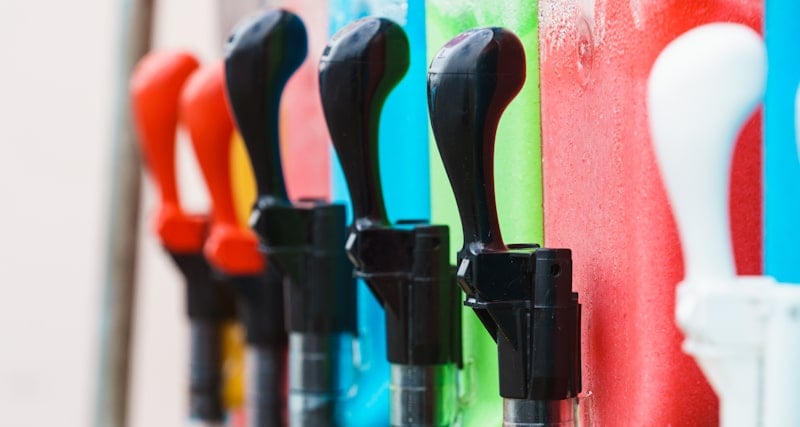Have you ever been in the dilemma where you know what you’re saying, but you’re not sure about the spelling when it comes to writing? Slushie Vs Slushy is a perfect example of this type of scenario.
Slushy, despite the different spellings, refers to carbonated or non-carbonated icy or frozen drinks. It’s an adjective that describes the stage of a liquid beverage; slushie and slushy are the same, no matter which one you use. However, the spelling that’s commonly utilized is slushy.
Hearing this word coming from toddlers makes it sound like something yummy and desirable; there’s no hesitation in paying attention to the pronunciation that’s coming out of their tiny mouths; however, this is not the same feeling we get when an adult is saying it. We wonder if they’re pronouncing it right, and how do you even spell that word?
Definition
According to the Merriam-Webster Dictionary: slushy is a word commonly used as an adjective for being, involving, or resembling slush. This can represent as covered with slush, having the consistency of, or having a cheaply sentimental quality. We can also find this word commonly as a noun like the drinks made of flavored frozen ice, flavored syrup poured over crushed ice, or partially melted ice. We can find different definitions depending on how the word is being used and the context where it is being expressed.
Word type
Adjective
(slushier; slushiest)
-involving or resembling slush
Adjective utilized in sentences
- Be careful with the slushy snow, it can be dangerous, and you may fall.
- It’s winter, and there’s a discount on slushy weather outfits.
- Mary couldn’t go to the store because of how slushy and cold it was outside.
- It’s pouring rain; I know that’s going to make the land slushier than usual.
- This has been the slushiest season we’ve seen in decades. I would prefer to stay home and do some hot chocolate.
- John! Are you done shoveling the slushy muck? I need your help in the kitchen.
- Ann Marie’s yard is slushier than mine, and I believe the length of the grass is a part of the reason.
Noun
(slush; slushed; slushing; slushes, slushiness)
- flavored frozen drink
- weak emotionally
- melting snow
Noun utilized in sentences
- I don’t like regular margaritas; I prefer them slushed.
- Carrie is slushing the mud away, and when she’s done, the kids can go outside and play.
- Today is pool day at school, and the children are having so much fun you can hear the slashes from the office.
- Hey, I have to go to the restroom real quick. Can you please tell the waitress my lemonade looks slush, so I prefer a soda?
- Can I please have a lemon slushy with a cherry inside?
- Do you like your drinks slushy or with cubed ice?
- The novel was so bad it had a slushy ending, and all of the main characters died.
- Not to be slushy, but I’m so glad to be part of an amazing and caring team.
- My uncle has an ice cream shop, and sometimes I help him with the slushy machine.
- The slushy machine broke; we are not selling slushies anymore.
- I prefer orange carbonated slushies; they taste like frozen Fanta.
- My mom never left me alone at the mall; she knew I was going to use my savings to buy slushies.
Adverb
(slushily)
-soft mud; mire; slop
-in a slushy way
Adverb utilized in sentences
- I couldn’t go ice skating today; it looked slushily.
- Would you go to Vail in the summer? Everything is still slushily by that time.
- No matter how slushily it is outside, I’m partying tonight!
- I understand why my flight got canceled. It’s so slushily outside it would’ve been so hard to land.
- I’m not sure I can travel this weekend. The meteorologist on the radio said it will be slushily and foggy outside.
- Jose can’t believe his wife made him go to the grocery store with this weather. It’s so slushily and slippery outside he can break a leg.
Origin
It is believed that the origin of the word can be found back in the 1640s compared to Swedish and Danish vocabulary. Due to their language and the phonics of some of their words, slushy and sloshing were the most commonly used terms to refer to the ground after it was covered in melting snow. The word was combined in 1839 and 1874 with different meanings but the most commonly used is for melting snow and water as well as the frozen stage of it.
It’s very interesting to see how a sound can transform into a combination of sounds and finally create a word that can be utilized and change it’s meaning depending on the culture. This is why before we travel to any country, it is helpful to get the basic knowledge of their language and vocabulary to avoid any misunderstanding or confusion when utilizing a word that can have different meanings or can be used in different ways based on the context.
Synonyms and related words
miry, mucky, muddy, grubby, grungy, gunky, impure, smutty, soiled, squalid, stained, sullied, unclean, uncleanly, oozy, slimy, sludgy, befouled, begrimed, cruddy, dirty, filthy, foul, grimy, grotty, clayey, loamy, roily, silty.
When it comes to emotions, we can find the following:
cloying, corny, drippy, fruity, gooey, lovey-dovey, maudlin, mawkish, mushy, novelettish, saccharine, sappy, schmaltzy, sentimental, sloppy, soppy, soupy, spoony, sticky, sugarcoated, sugary, wet,dreamy, misty-eyed, moonstruck, moony, nostalgic, starry-eyed
feel-good, fuzzy, melodramatic, soap-operatic, soapy, sudsy
flat, insipid, soft-boiled, tasteless, vapid, watery.
Antonyms And Related Words
antiseptic, clean, cleanly, immaculate, pristine, sparkling, spick-and-span, spotless, squeaky-clean, unsoiled, unstained, unsullied.
When it comes to emotions, we can find the following:
Unadulterated, unvarnished, anti sentimental, cynical, hard-boiled, hard-edged, hard-headed.
Slushie Machines
Despite the etymology of the word, slushies are considered one of the favorite drinks for young kids and teenagers. The reason behind it is the slushie’s machine and its intense colors and different flavors. The difference between a slushie and other frozen beverages is that the ice never freezes into small cubes or crushed ice; it remains as tiny icy crystals no matter how many times the machine goes in circles inside. Before these machines were created, slushies were handmade, and their consistency didn’t last long.
In the 1950s, Omar Knedlik invented the first slushy machine by accident after seeing the reaction of freezing soda. He was an American businessman who started first with an ice cream after being a veteran in World War II and then had his own Dairy Queen.
After his creation, the slushies became more popular and commercial. Every mall, shop, store, and cafeteria wanted to have one to attract clients. The drink was so attractive that 7-eleven decided to buy the machines and changed the name to a more appealing one, “Slurpee.”
Conclusion
Now that you’ve gotten this far, I would like to assure you that if you were writing slushy or slushie when ordering your drinks, perhaps to advise your friends of the melting snow or how that romantic movie made you feel, you were correct. When to use them will depend on the context, word type, and how you’d like to present the information.
You might be thinking, why complicate communication with different ways to write a word when it can just stay plain and simple? Well… remember, words are combinations of sounds incorporated to our vocabulary based on our culture and the time the terminology was known; besides that, we wouldn’t have fun names to call our favorite drinks without them!
Shawn Manaher is the founder and CEO of The Content Authority. He’s one part content manager, one part writing ninja organizer, and two parts leader of top content creators. You don’t even want to know what he calls pancakes.



